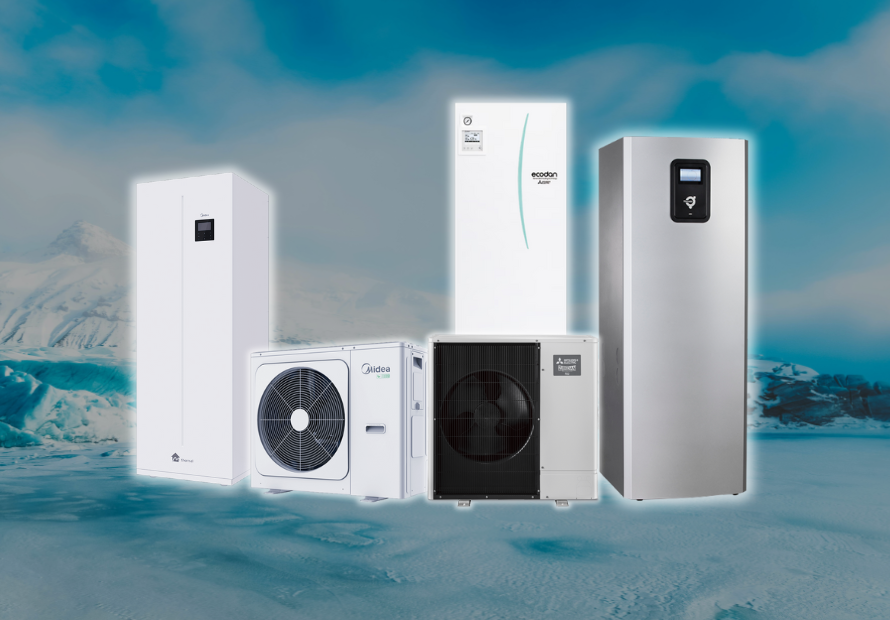22.03.2024
V. Heat pumps - a brief summary

Since the beginning of the week, we've looked at the most popular types of heat pumps and understood their main advantages and disadvantages. The aim of this article is to draw conclusions and make recommendations on their efficiency, choice and use.
The main conclusion that can be drawn, which is largely accepted as the norm but can still be heard sometimes, is with regard to the efficiency of heat pumps. Any of the three most popular types of heat pumps can operate efficiently as a main heating source, even air-to-air heat pumps. The only condition is that the characteristics of the unit itself, the energy efficiency of the building, and the heating system to which it will be connected must be assessed. As with any other heating system, if a unit is chosen that is not powerful enough or is only able to provide the desired temperature at relatively mild temperatures, the heat pump will not be able to heat the building at higher temperatures, or will be forced to rely on a back-up electric heating element.
It follows that each type of heat pump will be more suitable for a different type of home. For example, a new, small private house with good insulation would benefit from an air-to-water heat pump system, even if the heating is transferred via radiators. But if the heating system is being renovated or built for a large private house, if the available space and finances allow, a ground-to-water heat pump system will be more efficient. In an apartment that does not require additional hot water production and where the necessary consents have been obtained, this could even be provided by an air-to-air heat pump. Unlike solid fuel boilers, which often have a wide capacity range, a heat pump should preferably be selected on the basis of the heating capacity required for the particular system, even if it is used to provide hot water.
We would like to end this article with some recommendations. Although straightforward, they may help you to make the right choice for a new heating system:
- Before deciding on a new heat pump system, consider what would be best for your home. Instead of a more powerful heat pump, it might be wiser to invest in insulation or the heating circuit itself. This additional short-term investment will pay off in lower electricity consumption and less load on the unit;
- When choosing a heat pump, be aware of its parameters! In most cases, your installer or designer will choose the best unit for your home, but if you are buying yourself, it is useful to remember various simple parameters such as the capacity, dimensions and especially the electrical connection;
- Once you have an idea of the type of heat pump you want and whether it is suitable for your home, look at the options in several price categories. It is often more cost-effective to buy a higher-end unit, which will pay for itself in running time and will be able to deliver heat more efficiently at low temperatures (even if at +7 or -2 degrees the temperature of a budget unit is similar to a premium unit);
- More relevant for air-to-water heat pumps - don't worry that some days of the year at very low temperatures the additional electric heating element will turn on. For a properly selected heat pump, this will only happen a few days a year and will not be noticeable in the overall use of the appliance.
We hope that we have been able to help you with this article, and with the series of articles as a whole.
Back to news